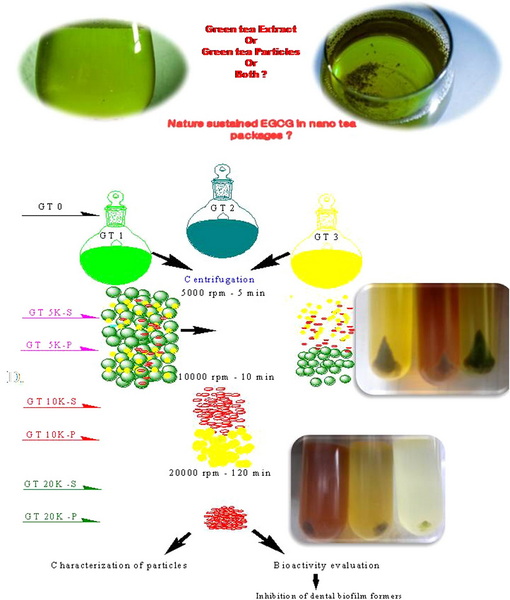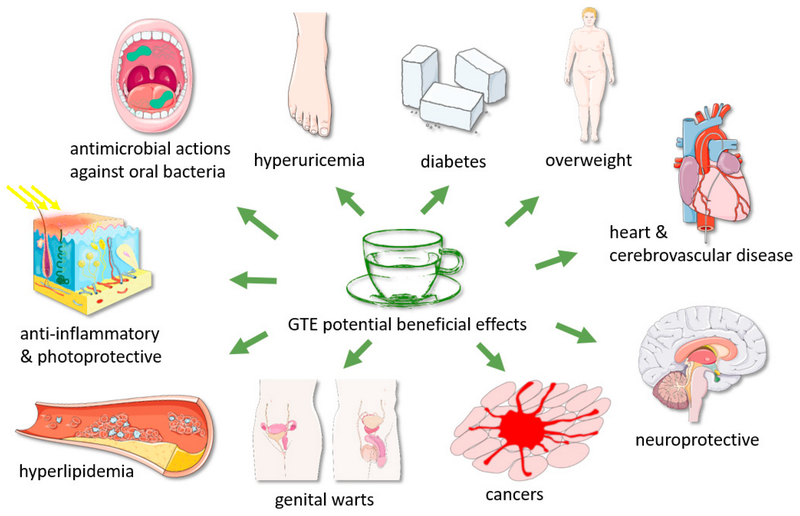Content Menu
● What is Green Tea Extract?
● Health Benefits of Green Tea Extract
● Recommended Daily Dosage
● Forms of Green Tea Extract
● Potential Side Effects
● How to Choose a Quality Green Tea Extract
● Best Practices for Taking Green Tea Extract
● Conclusion
● FAQ
>> 1. What is the best time to take green tea extract?
>> 2. Can I take green tea extract while on medication?
>> 3. Is there a maximum safe dosage for green tea extract?
>> 4. Can I take green tea extract on an empty stomach?
>> 5. Are there any side effects associated with taking green tea extract?
● Citations:
Green tea extract is a concentrated form of green tea derived from the leaves of the *Camellia sinensis* plant, renowned for its health benefits. This article delves into the recommended daily dosage of green tea extract, its various health benefits, potential side effects, and frequently asked questions regarding its use.

What is Green Tea Extract?
Green tea extract is produced by extracting the beneficial compounds from green tea leaves, primarily catechins, which are a type of antioxidant. The most notable catechin in green tea extract is epigallocatechin gallate (EGCG), which is believed to be responsible for many of its health benefits. This concentrated form allows individuals to enjoy the advantages associated with green tea without consuming large quantities of the beverage itself.
Health Benefits of Green Tea Extract
1. Antioxidant Properties: Green tea extract is rich in antioxidants that help combat oxidative stress and reduce cell damage caused by free radicals. This protective effect has been linked to a lower risk of chronic diseases, including cancer and heart disease.
2. Weight Management: Research indicates that green tea extract can aid in weight loss by enhancing fat oxidation and increasing metabolic rate. A study found that women taking high doses (approximately 856 mg of EGCG daily) experienced significant weight loss and reductions in waist circumference over 12 weeks[2].
3. Heart Health: Regular consumption of green tea extract has been associated with improved cardiovascular health. It may help lower blood pressure, reduce LDL cholesterol levels, and improve overall heart function[6].
4. Cognitive Function: The catechins in green tea extract have shown potential in supporting brain health by protecting neurons from oxidative stress and possibly reducing the risk of neurodegenerative diseases such as Alzheimer's[5].
5. Skin Health: Green tea extract is often incorporated into skincare products due to its anti-inflammatory properties and ability to protect against UV damage. Studies suggest it can help reduce signs of aging and improve skin conditions like acne[6].
6. Diabetes Management: Some research suggests that green tea extract may help regulate blood sugar levels and improve insulin sensitivity, making it beneficial for individuals with type 2 diabetes[3][8].
7. Cancer Prevention: While more research is needed, some studies indicate that the antioxidants in green tea extract may have a role in cancer chemoprevention by inhibiting tumor growth and reducing the risk of certain cancers[5][10].
Recommended Daily Dosage
The appropriate dosage of green tea extract can vary based on individual health goals and product formulation. Here are some general guidelines:
- General Health: For overall health benefits, a daily intake of 300-800 mg of green tea extract is commonly recommended.
- Weight Loss: If using green tea extract specifically for weight management, studies suggest a range between 400-600 mg per day may be effective.
- Cognitive Support: For cognitive enhancement, doses around 400-600 mg per day are often cited in research.
It's important to note that these dosages typically refer to the amount of EGCG present in the extract. For example, if a supplement contains 50% EGCG, a 500 mg capsule would provide about 250 mg of EGCG.
Forms of Green Tea Extract
Green tea extract is available in various forms:
- Capsules/Tablets: These are convenient for those who prefer not to taste the product.
- Powdered Form: Can be added to smoothies or other beverages for those who enjoy mixing their supplements into food.
- Liquid Extracts: Often used for topical applications or mixed into drinks.

Potential Side Effects
While green tea extract is generally safe for most people when consumed in moderation, excessive intake can lead to adverse effects:
- Liver Toxicity: High doses (above 800 mg EGCG) have been linked to liver damage in some individuals. It's crucial to avoid taking green tea extract on an empty stomach or in large bolus doses[1][9].
- Gastrointestinal Issues: Some users may experience stomach upset or nausea when taking green tea extract supplements.
- Caffeine Sensitivity: Green tea contains caffeine; thus, individuals sensitive to caffeine may experience symptoms such as insomnia, anxiety, or irritability[10].
- Interactions with Medications: Green tea extract can interact with certain medications, particularly blood thinners and medications metabolized by the liver. Always consult with a healthcare provider before starting any new supplement regimen.
How to Choose a Quality Green Tea Extract
When selecting a green tea extract supplement, consider the following:
- EGCG Content: Look for products standardized to contain a specific percentage of EGCG for consistent dosing.
- Purity and Quality Testing: Choose brands that undergo third-party testing for purity and potency.
- Reputable Brands: Opt for well-known brands with positive user reviews and transparent ingredient sourcing.
Best Practices for Taking Green Tea Extract
To maximize the benefits while minimizing potential side effects:
1. Start Slow: If you are new to green tea extract or do not regularly consume caffeine, begin with a lower dose (around 300 mg) and gradually increase as tolerated.
2. Timing Matters: Taking green tea extract earlier in the day can help minimize potential sleep disturbances due to its caffeine content.
3. Avoid Empty Stomach Consumption: Taking green tea extract on an empty stomach can increase gastrointestinal discomfort and risk of liver toxicity[7].
4. Stay Hydrated: Ensure adequate water intake throughout the day to support overall health and mitigate any potential side effects from caffeine consumption.
5. Monitor Your Response: Pay attention to how your body responds after starting supplementation; if you notice adverse effects, consider adjusting your dosage or consulting with a healthcare provider.
Conclusion
In summary, green tea extract offers numerous health benefits ranging from antioxidant protection to cognitive support and weight management. The recommended daily dosage typically ranges from 300 mg to 800 mg depending on individual health goals. However, it's essential to consult with a healthcare professional before starting supplementation, especially if you have underlying health conditions or are taking medications.

FAQ
1. What is the best time to take green tea extract?
Taking green tea extract earlier in the day can help minimize potential sleep disturbances due to its caffeine content.
2. Can I take green tea extract while on medication?
Yes, but you should consult your healthcare provider first as it may interact with certain medications like anticoagulants.
3. Is there a maximum safe dosage for green tea extract?
Yes, it is generally advised not to exceed 800 mg of EGCG per day due to potential liver toxicity risks.
4. Can I take green tea extract on an empty stomach?
It's recommended not to take green tea extract on an empty stomach as this can increase the risk of gastrointestinal discomfort and liver toxicity.
5. Are there any side effects associated with taking green tea extract?
Possible side effects include liver toxicity at high doses, gastrointestinal issues like nausea or upset stomach, and interactions with medications.
Citations:
[1] https://www.webmd.com/vitamins/ai/ingredientmono-960/green-tea
[2] https://pubmed.ncbi.nlm.nih.gov/26093535/
[3] https://pmc.ncbi.nlm.nih.gov/articles/PMC6412948/
[4] https://examine.com/supplements/green-tea-extract/
[5] https://www.healthline.com/nutrition/egcg-epigallocatechin-gallate
[6] https://www.healthline.com/nutrition/10-benefits-of-green-tea-extract
[7] https://www.drugs.com/npp/green-tea.html
[8] https://www.medicalnewstoday.com/articles/269538
[9] https://www.elo.health/articles/green-tea-extract-supplements/
[10] https://www.urmc.rochester.edu/encyclopedia/content?contenttypeid=19&contentid=GreenTeaExtract






























